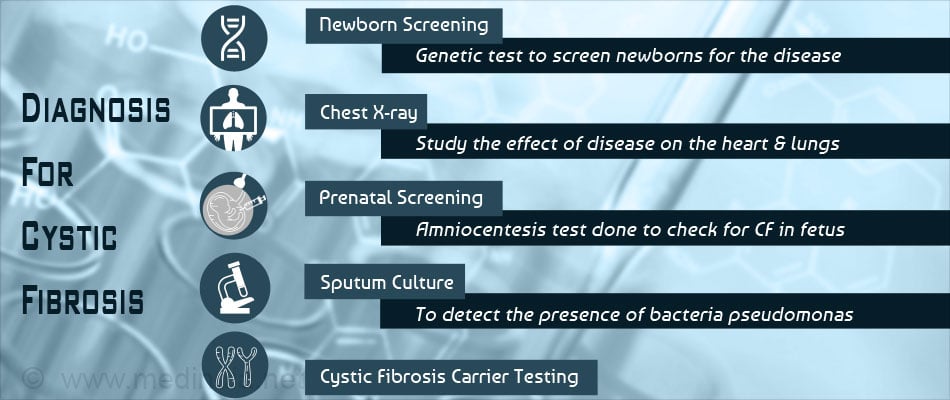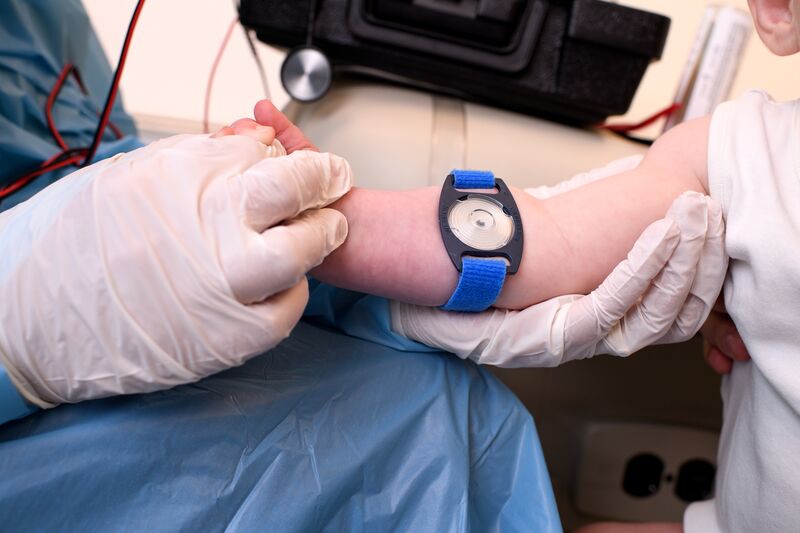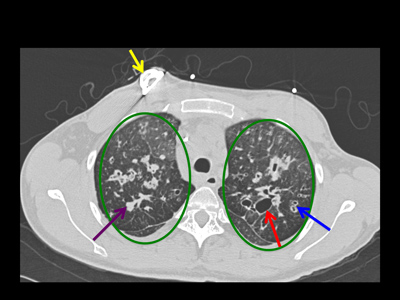Matchless Info About How To Detect Cystic Fibrosis

A procedure in which a small sample of cells is taken from the placenta and tested.
How to detect cystic fibrosis. Ad if you have taken a break from your inhaled antibiotic, fev1 levels could dip down. To diagnosis cystic fibrosis, doctors take a blood sample for genetic testing or conduct a sweat test. Get your sweat sample tested for a high chloride concentration.
The sweat test is the gold standard for determining cystic fibrosis. Sweat test, skin surface samples to measure sodium and chlorine levels “chlorine more than 60 milliliters per liter confirms the diagnosis of cystic fibrosis fieldbaum explains. They may test sweat for high salt content, which can indicate cystic fibrosis.
This assay can detect 23 cf mutations recommended by acmg/acog, the 1078delt mutation, and 16 of the world’s most common. It may be utilized if you have symptoms that suggest cystic fibrosis or to confirm a positive diagnosis from a newborn. Carrier screening to detect cftr mutations.
Learn why inhaled antibiotics are important to fighting pseudomonas aeruginosa. Genetic testing can tell you if you carry a mutation of the cftr gene. How to detect cystic fibrosis overview how to detect cystic fibrosis fatty liver is a condition that causes the body's liver cells to swell up, known as fibrosis.
A sweat chloride level of more than 60 millimoles per liter is considered abnormal and indicates the high likelihood of cystic fibrosis, though some people with cf do have borderline or even. When salt doesn’t go where it needs to, levels of water in certain parts of the. An inherited disorder that causes problems with.
High salt in the sweat can. Ad if you have taken a break from your inhaled antibiotic, fev1 levels could dip down. Cystic fibrosis is an autosomal recessive disorder.
To diagnose cystic fibrosis, doctors usually perform blood tests. How is cystic fibrosis detected? Learn why inhaled antibiotics are important to fighting pseudomonas aeruginosa.
If you have a chloride concentration of 60 mmol/l, you likely have cystic fibrosis. Cystic fibrosis results when a protein that controls how salt flows in and out of cells does not work properly.

/cystic-fibrosis-symptoms-5b290ad73037130036845813.png)



:max_bytes(150000):strip_icc()/cystic-fibrosis-diagnosis-5b290b6904d1cf00363f0046.png)


/cystic-fibrosis-diagnosis-5b290b6904d1cf00363f0046.png)



.jpg)




:max_bytes(150000):strip_icc()/GettyImages-99310790-569718683df78cafda8f7d2b.jpg)
